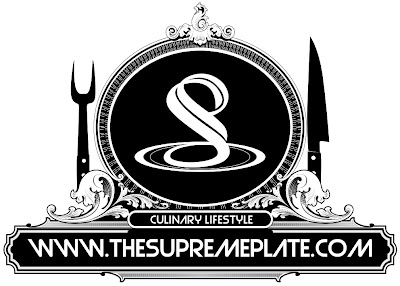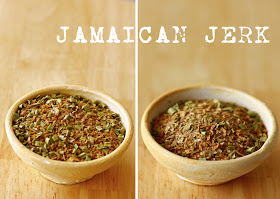An Alphabetical Guide To Healthy Eating.
As
the warm days begin to dwindle and the cold weather months kick their calamity
of sorts into high gear, it is imperative to remember the ABC’s of staying
healthy, by eating the right foods & avoiding stress in your life. The times have changed, people used to
have to search for the latest diet craze to make themselves miserable in hopes
of losing a few lbs or inches. These days, consumers looking to stay in shape
have to search through what they are force-fed, everywhere they turn to figure
out what is hype and what is reality (and trust us a lot of these new diets are
just pure BS.)
With
everyone labeling themselves as “Fitness Gurus” and “Lifestyle Coaches,” its
plain to see that there are two simple facts that cannot be overlooked in
regards to living a healthy lifestyle;
1.
It (fitness) is a big business, so know who you are listening too before you
start some crazy diet that may cause you sever harm &
2.
Not every diet is geared to work for everyone, so a clear understanding as to
what you should and should not be eating is crucial before getting started.
We’ve
put together a quick list of super foods and foods that do super damage and
hope that this will help to inform you a bit about foods that are great for you
vs a diet that does nothing for you at all.
A. Avocados -
Loaded
with Vitamin E, these delicious fruits are full of healthy fatty oils that
promote smooth muscle growth, are loaded with antioxidants and help to promote
cell signaling.
B. Bananas -
Bananas
are an excellent source of Vitamin B, soluble fiber and contain moderate
amounts of Vitamin C, Manganese and Potassium. Along with a few other foods,
consuming Bananas has shown to reduce the risk of colorectal cancer and in
women breast cancer.
C. Cranberries -
Raw
Cranberries have moderate levels of Vitamin C, Dietary Fiber as well as show
increased abilities in helping to fight urinary tract infections in both men
and women. Cranberry Juice also
has a high molecular weight that inhibits the formation of Plaque pathogens
that cause tooth decay. (click Read More for the entire Alphabet of Healthy Eating)
D. Dates -
Dates
have a high tannin content and are used in traditional medicine as a detersive
(meaning to have cleansing power) and astringent in intestinal troubles. They
are also loaded with dietary potassium,
protein, fluorine, selenium and zinc.
E. Eggs -
Bottom
line, eggs are healthy, much like everything else in moderation. Eggs add
protein to a person’s diet as well as other important nutrients such as Folic
Acid, Iron, Calcium, Phosphorus and Potassium. All of the eggs vitamins (A,D
& E) are in the yolk. Choline, which eggs are rich in, is a nutrient that
plays an important role in the development of the brain and is said to be
HIGHLY important for pregnant and nursing women to ensure healthy brain
development.
F. Fish -
Decades of research have shown that oily
fish, such as Salmon, Sardine’s, Southern Blue-fin Tuna & Sharks contain a
high amount of fat soluble vitamins (A,D,E & K) and essential fatty acids,
all of which are vital for healthy functioning within the body.
G. Grapefruit -
High in fiber, low in calories and a
great source of Iron, Calcium, Beta Carotene (a precursor to Vitamin A.)
Grapefruits are also loaded with Vitamin C, potassium and contain bioflavanoids
and other plant chemicals that are known to protect against cancer and heart
disease.
H. Honey -
A
great source of natural energy, which contains Choline (a water soluble
essential nutrient needed to build cells within the body.) Also a natural
sweetener devoid of any sugars (when labeled as such.)
I. Iron -
Rich
sources of dietary iron include red meat, lentils, beans, fish, poultry and
most vegetables. The RDA (recommended daily allowance) of Iron varies by age
and size, so be sure to consult a physician before taking supplements. People
who suffer from anemia can often benefit from taking Iron supplements and
eating lean meats.
J.
Jerk Seasoning -
Many
people these days suffer from conditions that result in having to adhere to a
diet that prohibits them entirely from having any added salt. Jerk Seasoning is
our answer for what to do when you need to add some flavor to some chicken,
beef or seafood but cannot add any salt.
K. Kimchi -
Kimchi
is a Korean dish that is made of fermented vegetables, which are have a high
concentration of dietary fiber, while being incredibly low in calories. On the
average, one serving of properly made Kimchi, will provide you with 50% of the
RDA of Vitamin C and Carotene. Kimchi is essentially high in Vitamin A,
Riboflavin, Calcium, Iron and is known to aid in digestion and possibly
reducing the growth of cancer.
L. Legumes -
Not
just because in the grain legume family can you find beans, lentils, peanuts
and so on, but Legumes are key to a few things in the diet. Used as a “side” in
many dishes such as rice and beans, peanut butter and bread, beans and
tortillas, these forms of legumes serve as a balance for amino acids. And
you can never go wrong with a plate a red beans and rice…
M. Milk -
The
best source of calcium hands down. Low fat dairy products are low in
cholesterol and high in protein, Vitamins A & D, Riboflavin, phosphorus and
Magnesium.
M. Melons - (For those that are lactose
intolerant)
Sweet
& Flavorful, low in calories, high in pectin, a soluble fiber that helps
control blood cholesterol.
N. Nuts -
Rich
in Vitamin E & Potassium, most nuts are high in minerals, including
calcium, iron zinc and much more. Some are a great source of niacin, folate and
other B Vitamins. Especially beneficial in providing protein when combined with
Legumes. Raw cashews should never be eaten.
O. Onions -
Onions
are proven to lower elevated blood cholesterol levels, as well as provide a
good source of Vitamin C and Beta Carotene. Onions also help to prevent
superficial infections, contain antioxidants and help to lower blood pressure.
P. Prunes -
Prunes
are a rich source of Vitamin A, B, E, Potassium and Iron. Prunes help to
relieve constipation, are a good low calorie source of Vitamin C, are high in
dietary fiber, beta carotene and have a lengthy shelf life.
Q. Quinoa -
Quinoa
is a fantastic source of calcium and iron, which is great for Vegans or those
that are lactose intolerant. Gluten free and considered one of the easiest
things to digest.
R. Raspberries -
High
in fiber and a rich source of Vitamin C, Raspberries are a great go to snack to
provide energy throughout the day or to add flavor to a smoothie / shake made
with bananas, milk or protein powders to that healthy boost.
S. Smoked, Cured & Pickled Meats -
People
may go YES when they see this, thinking we are promoting the eating of them. In
limited amounts they wont cause you harm, but consider the fact that most
smoked, cured and pickled meats (i.e. beef jerky, bacon, smoke salmon, etc) are
high in nitrites, a cancer causing agent, are high in tyramine, a migraine
causing agent in the body, can lead to hypertension and heart disease.
T. Tea -
Herbal
Teas are caffeine- free. Tea when consumed almost plain is basically calorie
free, full of riboflavin and contains tannins that may provide protection against
dental decay. Green Tea is high in Vitamin K. Some Tea’s, have a direct link to
reducing the risks of cancer, heart disease and stroke.
U. Unsalted Butter -
As
butter is a good source of Vitamin A, butter is useful in dieting in a way many
people are unaware of. Adding a bit of butter to a low fat food, such as
vegetables, wards off the feeling of being hungry.
V. Vegetables -
Diets
that contain a proper amount of vegetables often help to prevent type 2
diabetes and lower the chances of having heart disease. Vegetables are loaded
with just about every vitamin you can imagine, depending on what the vegetable
may be, will determine what it is higher or lower in. It goes without saying we
could all use more vegetables in our lives and less stress.
W. Water -
Staying
hydrated and keeping the body free of toxins is crucial at all ages, especially
when you sweat profusely throughout the day. Look to consume 5 – 8 glasses of
water a day. Staying hydrated helps to make better decisions as the brain needs
water to function properly.
X.
Y. Yogurt -
Yougrt
is nutritionally rich in Protein, Riboflavin, Vitamin B6, Vitamin B12 and
Calcium. Containing a significantly higher nutritional value than that found in
Milk, it can also prevent antibiotic associated diarrhea.
Z. Zucchini -
One
of the easiest “fruits” to cultivate, low in subdominal calories and full of
Vitamin A, a ½ cup of Zucchini provides roughly 20% of the RDA for manganese.






















No comments:
Post a Comment